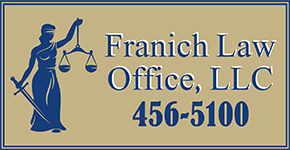FAQ Estate Planning
What is estate planning?
Who needs estate planning?
What are the basic estate planning documents?
The basic estate planning documents include:
- A will: a legal document that outlines how you want your assets to be distributed after your death. It also allows you to name a guardian for your minor children, designate a person to manage your estate, and can even provide details for funeral arrangements, and more.
- A power of attorney: a legal document that allows you to appoint someone else to make decisions on your behalf if you become incapacitated.
- A healthcare directive: a legal document that outlines your wishes for medical treatment in the event of your incapacity.
Depending upon your situation, you may need other documents such as:
- A living trust: A living trust is a legal arrangement that allows you to transfer your assets to a trustee to manage for your benefit during your lifetime and for the benefit of your beneficiaries after your death.
- A transfer on death deed, automatically giving title to your real property to your heir(s) upon your death.
What is probate?
Probate is the legal process of distributing a deceased person’s assets to his or her heirs. The probate process can be time-consuming and expensive. It is rarely a quick process, but many times necessary, and it involves several steps:
- Appointing a Personal Representative (sometimes called an executor) to handle the probate of the decedent’s (the person who died) estate.
- Gathering property owned by the decedent.
- Notifying the decedent’s creditors, beneficiaries, and/or heirs.
- Handling debts and taxes.
- Wrapping up the final business affairs of the decedent.
- Transferring legal title of the property owned by the decedent to the persons who are supposed to receive it.
- Filing any documents required by the state or federal government.
- Filing all documents required by the court.
Is probate required?
Probate is required when a person dies and owns property that does not automatically pass to someone else, and sometimes in other situations.
Probate allows a person appointed by the Court to transfer legal title of that property to the proper persons. A probate may also be necessary to handle claims against the person who died or the person’s property, to settle disagreements between the decedent’s beneficiaries and/or heirs, and to appoint a guardian for minor children, and more. There is no one way of knowing whether probate is necessary, and we highly recommend consulting with an attorney before deciding how to proceed.
How can I avoid probate?
There are a number of ways to avoid probate, including:
- Creating a living trust: Assets that are held in a living trust will generally pass to your beneficiaries without going through probate.
- Using beneficiary designations: Many assets, such as retirement accounts and life insurance policies, can be transferred to beneficiaries through beneficiary designations. This will avoid probate as long as the beneficiary designations are properly completed.
- Titling assets jointly: If you own assets jointly with another person, those assets will pass to the surviving joint owner upon your death, without going through probate.
What are the benefits of having an estate plan?
There are many benefits to having an estate plan, including:
- You can ensure that your assets are distributed according to your wishes.
- You can minimize taxes and other expenses.
- You can plan for the care of your minor children.
- You can protect your privacy.
- You can give yourself peace of mind.
- Potentially avoiding probate.
How much does estate planning cost?
How often should I review my estate plan?
What are some common estate planning mistakes?
Some common estate planning mistakes include:
- Not having an estate plan: This is the biggest mistake you can make.
- Failing to update your estate plan: Your estate plan should be reviewed regularly to make sure it is still up-to-date.
- Choosing the wrong executor or trustee: The executor or trustee is responsible for carrying out your wishes, so it is important to choose someone you trust and who is capable of handling the job.
- Not naming a guardian for your minor children: If you have minor children, you should name a guardian in your will to care for them if you pass away.
- Not making plans for your long-term care: If you have concerns about how you will pay for long-term care, you should discuss your options with an attorney or financial advisor.

